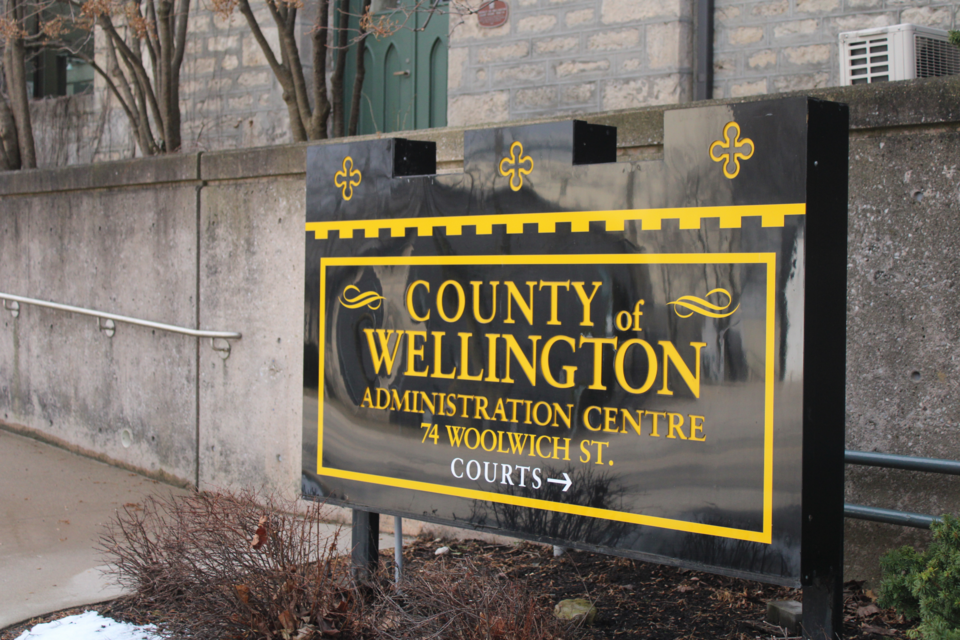WELLINGTON COUNTY – The County of Wellington roads committee is at odds over the possible implications of data-driven guidelines to address traffic complaints from citizens.
At Tuesday’s roads committee meeting they were presented with an update to the Road Master Action Plan (RMAP), which looks to provide an overall vision for improving county roads as well as guidelines on how to address traffic complaints.
Data from public engagement showed the most common types of comments were related to speeding and safety concerns on county roads.
Paul Bumstead, from Dillon Consulting, explained a data-driven safety strategy allows a municipality to use a transparent and evidence-based approach to address public concerns and identify true problem areas.
In terms of problem identification, Bumstead said you can categorize if an area is high or low risk based on frequency and severity of collisions.
From there, municipalities can evaluate if any measures are necessary or if the issue is more perception from residents.
This data can also look at automated speed enforcement, community safety zones, school zones or if the speed limit needs to be changed.
With speed limit reviews, consultant Tim Kooistra explained their recommendation is generally to adjust the posted limit if the 85th percentile — meaning the speed at which 85 per cent of drivers are traveling at or lower — is 15 km/h higher than the speed limit.
The report noted that setting the speed at what the 85th percentile drives at generally leads to safer roads and takes pressure off enforcement.
In two case studies on Lake Road/Wellington Road 32 in Puslinch and Wellington Road 124 in Erin, both of which have been subjected to many complaints from residents, the recommendations were to raise the speed limit in some sections.
The committee members were a bit mixed in their reaction to that suggestion and the implications of approving these guidelines.
Erin mayor Allan Alls said complaints about speeding are the most common issue any mayor deals with and it would be good to have a consistent way to deal with them.
Warden Kelly Linton acknowledged it will take a lot of work to get county council on board because of how often elected councillors field these complaints.
“We’re being asked to reduce our speeds everywhere to 40 km/h and the result of that is very frustrated drivers who start to ignore the speed limit because they don’t make sense,” Linton said, adding this creates a bad precedent for other complaints.
“This is the way it needs to be. Making political decisions leads to inconsistency and driver frustration and at the end of the day...that’s not what helps us in the long run.”
Puslinch Mayor James Seeley wasn’t totally on board and figured raising speed limits would not go over well with constituents whether based on data or not.
“This report I feel just says ‘okay if this stat says this, this stat says that, we can raise the speed limit and then we don’t have to ask for enforcement,’” Seeley said. “We are held accountable to our constituents and they do have concerns.”
Jeff Duncan, Erin county councillor, was not convinced either.
He noted he and Alls were currently dealing with a petition from residents who wanted a speed reduction on Trafalgar Road.
He acknowledged speed limits shouldn’t be set by petition but also said he felt a technical data review doesn’t tell the whole story.
He said he couldn’t imagine reducing the 40 km/hr zone that runs through most of Erin to just the downtown block despite what the case study recommended.
Andy Lennox, committee chair and Wellington North mayor, said objective criteria is critical to avoid arbitrarily setting speed limits but wanted to balance that with the other concerns.
The debate continued into subsequent related reports on the RMAP update.
Duncan again was concerned that raising the speed limit would just encourage people to push their speeds even higher than before and suggested “historic speed limits” should remain.
Linton replied he can list county roads in Centre Wellington that have limits set too low, resulting in a lack of consistency and driver frustration.
Longtime CAO Scott Wilson added he had been around when these limits were established and said it was all politically developed with “no science behind them.”
Some positions softened but ultimately the committee couldn’t reach unanimous consensus on the speed management guidelines.
On that report, Seeley called for a recorded vote which passed 3-2.
In favour: Alls, Lennox and Linton
Against: Duncan, Seeley



